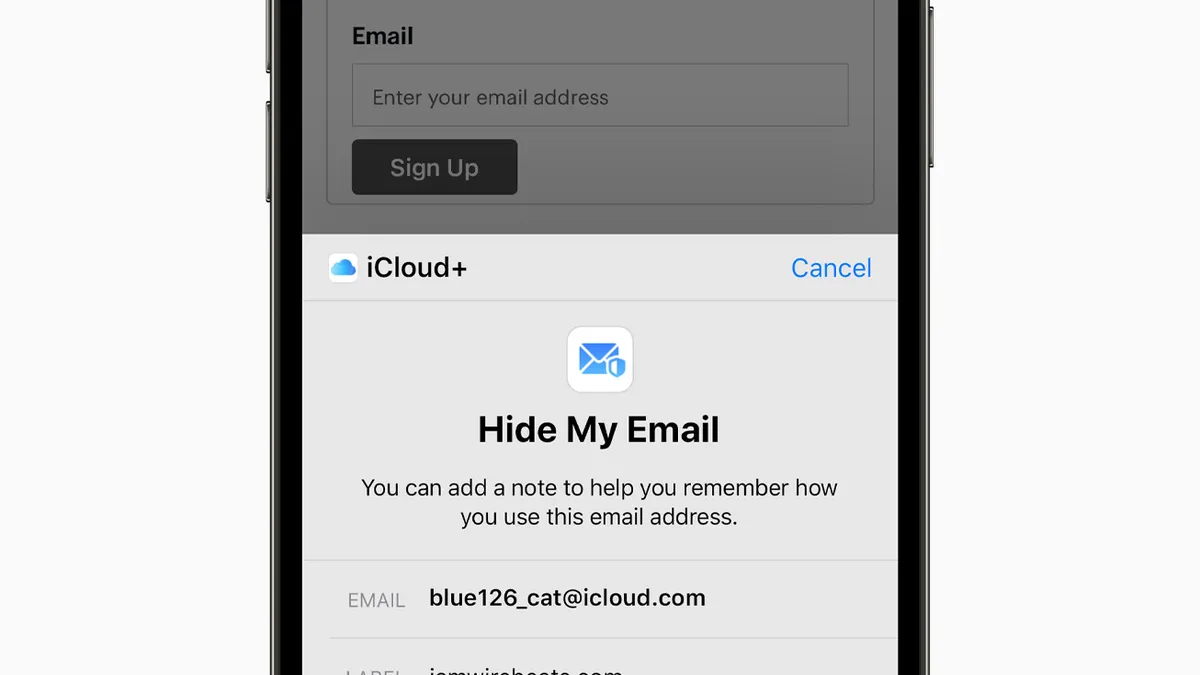Dive Brief:
-
Apple unveiled privacy and security enhancements to its iCloud+ service Monday, including a feature called Private Relay, which uses encryption to provide users with a secure browsing that works by sending user requests through two separate internet relays. The connection is protected from access by outside actors and cannot even be seen by Apple or a user's network provider.
-
Apple also announced a service called Hide My Email, which allows users to keep their email address private by sending unique, random email addresses that forward email to a personal inbox. The service is built directly into iCloud, the Safari browser and Mail functions.
-
"Today privacy and transparency is more important than ever, because when you use the internet and third-party apps, you can be tracked by a complex ecosystem of data brokers and ad tech firms, often without your permission," Craig Federighi, SVP of software engineering at Apple said during the keynote.
Dive Insight:
Apple has made a major push to attract enterprise customers with privacy and security features comparable to what is commonly available in VPNs. Those services have been under enhanced scrutiny in recent months due to a wave of malicious attacks impacting government agencies, the defense industry, financial services and other sectors.
"Over the past few years, security teams at enterprise organizations have increasingly had to consider data privacy protections across a number of contexts due to the increasing number of threats to users," Josh Jagdfeld, senior director, partner marketing at Jamf. "Unfortunately, solutions to these problems at an enterprise scale are often complex or overly burdensome to the user, which can result in a poor end user experience."
Apple has made inroads among enterprise users in recent years, according to research from IDC, as the work from home trend has raised significant interest in support for Macs, iPhones and iPads. MacOS increased its share of the enterprise market to about 23% in 2020, compared with about 17% in 2019. The data is based on companies with more than 1,000 employees.
Features like Apple's Mail Privacy Protection will help enable end-user privacy, but also neutralize certain techniques used in phishing attempts, according to Alcyr Araujo, founder and CEO of Mosyle.
"[Work from home] caused significant changes [in] how companies handle endpoint security," Araujo said. "With devices and employees outside the boundaries of the traditional corporate network, companies started to give more priority to devices that make employees more comfortable working — while bringing a focus on privacy and security."
The WFH move has made it much more complex for CISOs to protect a growing perimeter, as existing tools in many cases cannot get a clear picture into endpoint security where thousands of corporate employees are working from home or other remote locations.
When given the option, employees at many companies are choosing Apple devices as a preferred choice, Araujo said. Apple devices have natively built numerous security and privacy features into its operating system and the combination with Apple endpoint management has helped Apple grow its presence in the enterprise.













